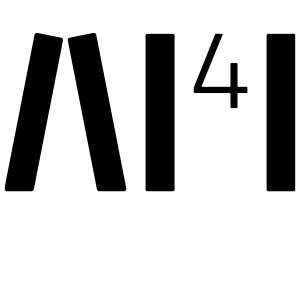R&D Labs are the core of AI4I.
They conduct oriented and applied research and technology transfer thus supporting the advancement and the adoption of artificial intelligence.
R&D Labs: Vision and Role
A Strategic and Balanced Portfolio
AI4I will activate up to 30 Labs by 2027. The selection follows a portfolio approach, based on:
- scientific proximity to the state of the art
- relevance to current and emerging industrial priorities
- potential for synergy across domains and disciplines
Areas of focus: AI Methods and Application Domains
The Lab portfolio is structured to cover:
- Four AI methodological paradigms: Perceptive/ML, Generative, Agentic, and Physical AI
- Four main application domains: Manufacturing, Products, Software and Materials
Collaboration with industrial partners and infrastructure
R&D Labs operate primarily at Technology Readiness Levels 3 to 6.
While it actively collaborates with the best academic institution to ensure leading-edge scientific and technical knowledge, they actively seek collaborations with industrial partners in all phases of the R&D process, through Commissioned R&D or Joint Laboratory agreements.
They are supported by AI4I’s Foundry, a system including a large HPC cluster (80 Nvidia B200+68 Nvidia H200) proprietary datasets and tools, and the even larger AI Factory (IT4LIA) promoted by the European Commission.
R&D Labs: Global Talent Attraction
The First International Call
The first international call for R&D Labs directors, launched in early 2025, has attracted applications from across Europe and North America.
Most shortlisted candidates were under 30, with degrees from institutions such as MIT, ETH Zurich, TU Delft, Oxford, École Polytechnique, Max Planck Institutes, INRIA, and DFKI. Several also brought experience from corporate R&D labs such as Bosch, Siemens, and Thales—highlighting AI4I’s ability to appeal to researchers working across academic and industrial boundaries.
The Second International Call
In July 2025, AI4I launched two new international calls as part of its ongoing effort to build a robust and dynamic research ecosystem. The first call focused on the selection of Directors for new mission-driven R&D Labs (Computer vision; Generative AI and Foundation Models in Advanced Manufacturing; Agentic AI for Intelligent Decisions; AI for Cybersecurity), while the second was an open call, inviting candidates to propose original topics aligned with AI4I’s mission and the advancement of AI applications for industry.
Both initiatives contribute to attracting top talent and strengthening the Institute’s long-term capacity to connect scientific excellence with industrial transformation.
AI4I R&D Labs
Updated July 2025
As a result of the first and second international calls, the following R&D Labs are in the process of being formed.

\ AMED
AI for Advanced Materials
& Engineering Design Lab
The AMED Lab develops next-generation AI methodologies — grounded in physics and manufacturing constraints — to revolutionize the design of architected materials and engineering systems. We aim to compress discovery and development cycles from months or years to mere days or weeks, while enabling unprecedented customization of architected and intelligent systems. Our research bridges cutting-edge machine learning with domain knowledge to create scalable, automated design pipelines ready for industrial deployment. The Lab’s innovations are poised to transform strategic sectors including aerospace, automotive, biomedical, manufacturing, robotics, defense, and consumer electronics, delivering benefits with global reach.
About Marco Maurizi
Dr. Marco Maurizi is Principal Investigator and Director of the Advanced Materials & Engineering Design (AMED) Lab at the Italian Institute of Artificial Intelligence for Industry (AI4I) in Turin (Italy). His research bridges artificial intelligence, computational solid mechanics, and additive manufacturing, with a particular focus on physics-informed generative models, graph neural networks, and surrogate solvers for the design of architected materials with tailored and reprogrammable functionalities. Before joining AI4I, Dr. Maurizi was a Postdoctoral Researcher at the University of California, Berkeley, where he co-led AI-driven metamaterials design in Prof. Xiaoyu (Rayne) Zheng’s lab under the NSF DMREF program. He earned his Ph.D. in Mechanical Engineering with merit from the Norwegian University of Science and Technology (NTNU). His work spans impact protection, fracture-resistant lattices, and programmable piezoelectric materials, and builds on collaborations with leading research centers across Europe and the United States. He also serves as a reviewer for journals such as Nature Communications and Nature Computational Science.
Name:
AMED
Research Fields
Advanced Materials & Engineering Design
Head:
Marco Maurizi
WEB page
amed.rd-labs.ai4i.it
Contact:
marco.maurizi@ai4i.it

\ AIS
AI Security Lab
The AI Security Lab protects organizations from emerging threats as they deploy AI technologies at scale. This Lab advances the frontier of AI security through rigorous research in threat detection, vulnerability assessment, and security validation. Key focus areas include designing robust security frameworks, building automated validation tools, creating threat models, and developing defenses that prevent malicious exploitation. These solutions help enterprises, government agencies, and technology companies confidently deploy AI products while maintaining security and operational integrity.
About Nicola Franco
Nicola Franco is a research scientist at the Fraunhofer Institute for Cognitive Systems IKS in Munich, Germany, where he leads work in AI security and quantum-enhanced verification methods. Specifically, his research focuses on adversarial robustness and formal verification to ensure AI models remain secure against malicious attacks. In parallel, he develops quantum algorithms to efficiently prove AI system security and investigates security aspects of quantum machine learning. Franco has collaborated extensively with industry partners and government agencies, including projects with the Federal German Office for Information Security examining security threats in quantum machine learning. He holds a PhD from the Technical University of Munich in data analytics and machine learning. Previously, he founded a spinoff which automates testing and certification of computer vision models in industrial applications. His contributions have been recognized with a Best Paper Award in AI Safety at the 2023 IJCAI conference.
Name:
AIS
Research Fields
Security
Head:
Nicola Franco
WEB page
[under construction]
Contact:
nicola.franco@ai4i.it

\ PHI
Physical Holistic Intelligence Lab
The Physical Holistic Intelligence Lab focuses on safe and explainable AI for smart industries. Our mission is to create inherently trustworthy AI systems by grounding machine learning and advanced generative models in the rigorous foundations of physics, control theory, differential geometry, and optimal transport. This holistic approach enables the design of AI frameworks with robust safety guarantees, interpretable decision-making, and reliable performance. Our work drives transformative industrial applications in sectors like robotics, smart manufacturing, automotive industry, and aerospace, among others.
About Leonel Rozo
Originally from Bogota, Colombia, Leonel Rozo is the Head of the Physical Holistic Intelligence Lab at AI4I. He is passionate about creating principled machine learning methods that unite differential geometry, control theory, and physics to solve complex challenges in domains such as robotic manipulation, human-robot collaboration, industrial automation, among others.
Leonel’s career began with a MSc. and a PhD in Robotics and AI from the Polytechnic University of Catalonia (UPC), after which he joined the Italian Institute of Technology (IIT), advancing from a postdoctoral researcher to a team leader. Later, he spent over seven years as a lead research scientist at the Bosch Center for AI in Germany, where he also led a Bosch Industry-on-Campus (IoC) Lab in collaboration with the University of Tübingen. His work has resulted in over 60 peer-reviewed publications in top-tier machine learning and robotics venues (such as NeurIPS, ICML, ICLR, R:SS, T-RO, and IJRR) and more than 15 patents.
Today at AI4I, Leonel is focused on advancing the next generation of smart factories by building safe and explainable AI systems grounded in geometric, control and physics principles.
Name:
PHI
Research Fields
Physical Holistic Intelligence
Head:
Leonel Rozo
WEB page
[under construction]
Contact:
leonel.rozo@ai4i.it

\RIAS
Robust and Intelligent Autonomous Systems Group Lab
The main focus of Robust and Intelligent Autonomous Systems R&D Lab will be on deriving methods for building provably robust autonomous systems that rely on data. To do so, it will rely on techniques from machine learning, control theory, Bayesian learning, and stochastic optimization. In particular, to achieve the goals, the lab will focus on two main areas: Safe and Robust Machine Learning Methods, and Control, Planning, and Uncertainty Propagation. It will focus on various application areas, including: autonomous driving, robotic systems, and additive manufacturing.
About Luca Laurenti
Luca Laurenti received his PhD degree from the University of Oxford (Department of Computer Science), UK. He is currently a tenure-track assistant professor at the Delft Centre for Systems and Control at the Delft University of Technology (TU Delft), the Netherlands. Prior to that, he spent two years as a researcher at the University of Oxford. Luca has a background in stochastic systems, control theory, formal methods, and machine learning. His research work focuses on developing data-driven systems that are provably robust to interactions with a dynamic and uncertain world. Luca will join AI4it from January 2026, where he will maintain a joint position at TU Delft.
Name:
RIAS
Research Fields
Autonomous Systems
Head:
Luca Laurenti
WEB page
[under construction]
Contact:
luca.laurenti@ai4.it





